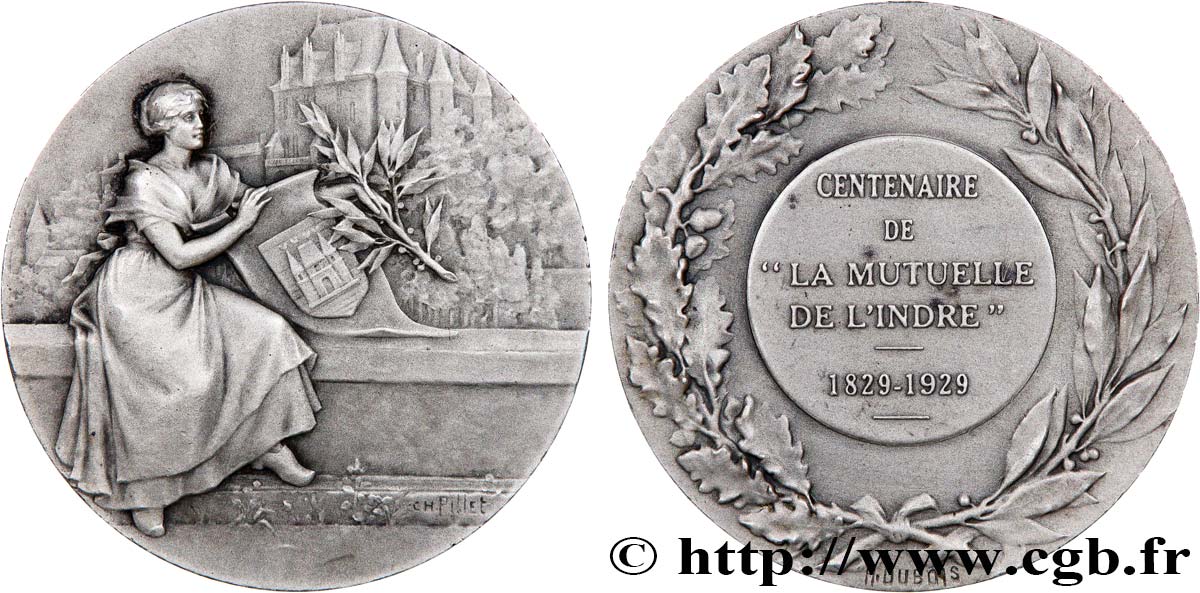fjt_750960 - INSURANCES Assurances mutuelles contre l’incendie (Indre) 1929
80.00 €(Approx. 85.60$ | 68.00£)
Quantity
Add to your cart

Type : Assurances mutuelles contre l’incendie (Indre)
Date: 1929
Metal : silver
Diameter : 40 mm
Orientation dies : 12 h.
Weight : 30,27 g.
Edge : Lisse
Puncheon : Corne 2 (1880 -)
Rarity : R1
Coments on the condition:
Flan mat
Catalogue references :
Predigree :
Exemplaire provenant de la Collection Jean-Paul Saillard
Obverse
Obverse description : Allégorie féminine en costume régional assise sur une balustrade et tenant un blason dessiné sur un parchemin, devant un paysage de château de la Renaissance. Signé : CH. PILLET.
Reverse
Reverse legend : CENTENAIRE DE “LA MUTUELLE DE L’INDRE” 1829-1929.
Reverse description : En cinq lignes dans une couronne de feuilles de chêne et de laurier.








 Report a mistake
Report a mistake Print the page
Print the page Share my selection
Share my selection Ask a question
Ask a question Consign / sell
Consign / sell
 Full data
Full data



